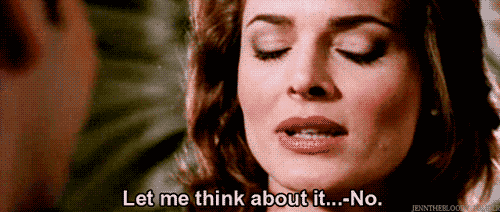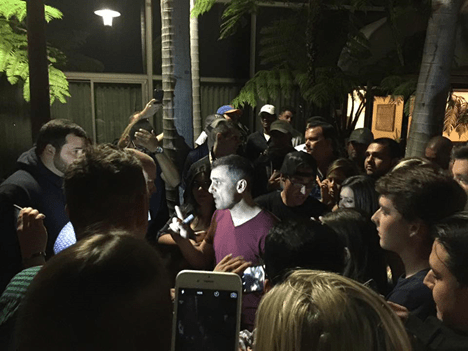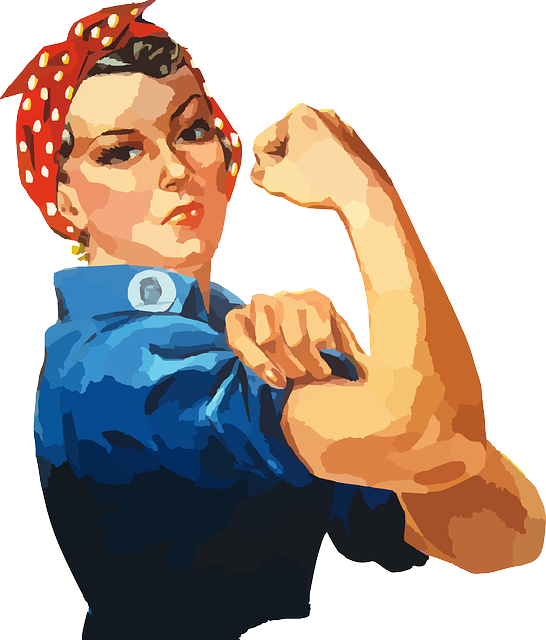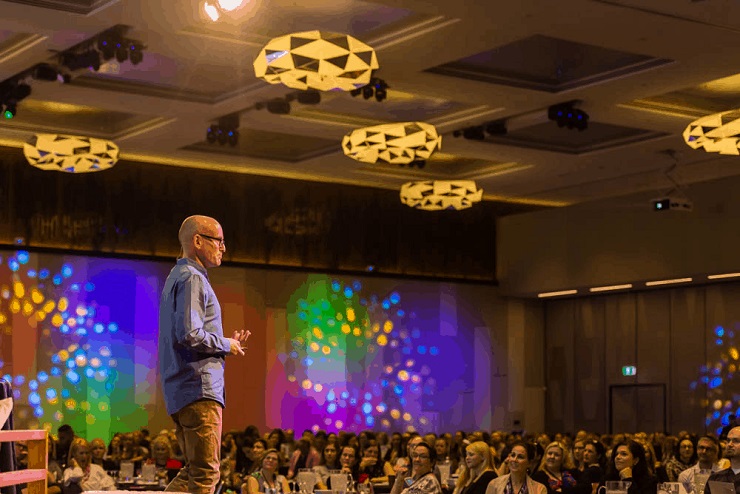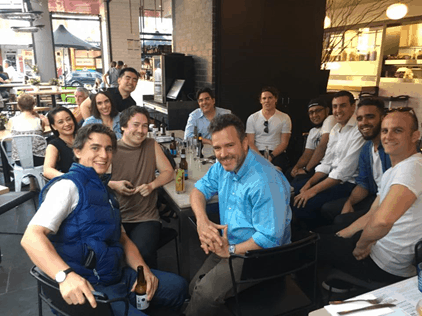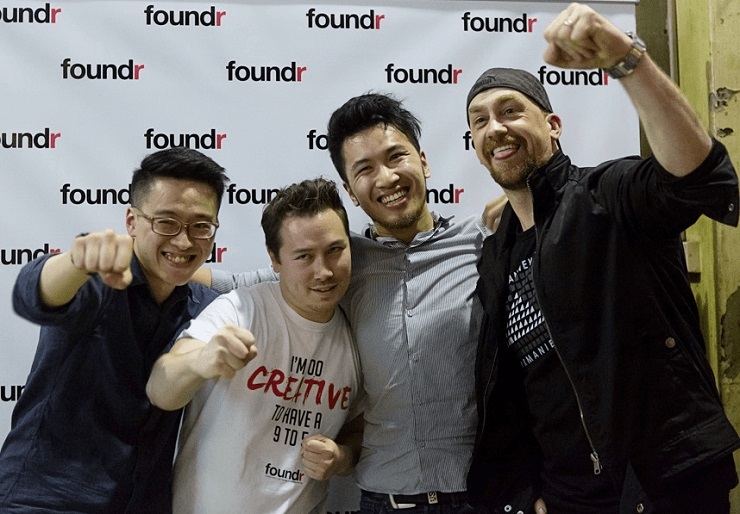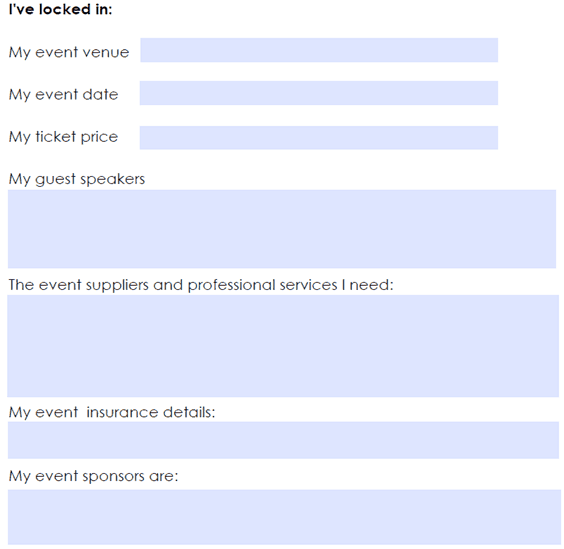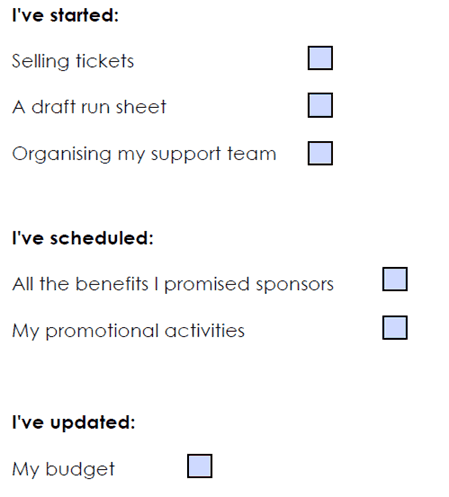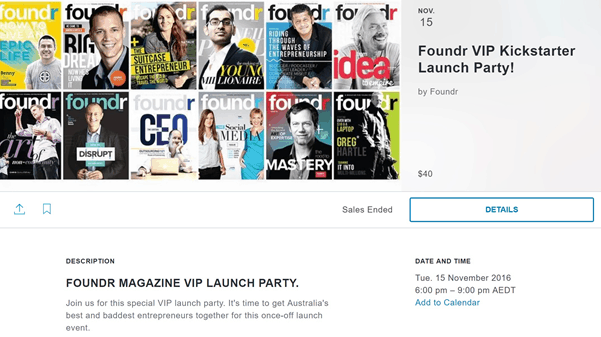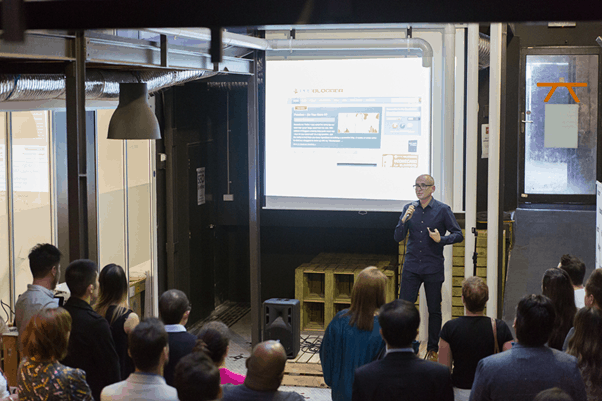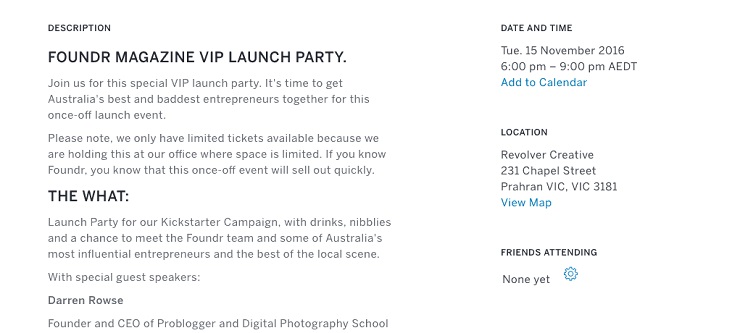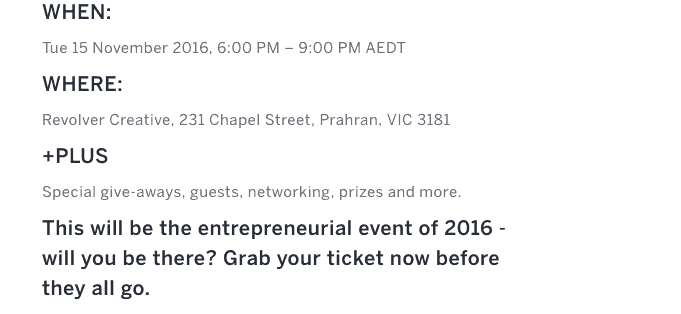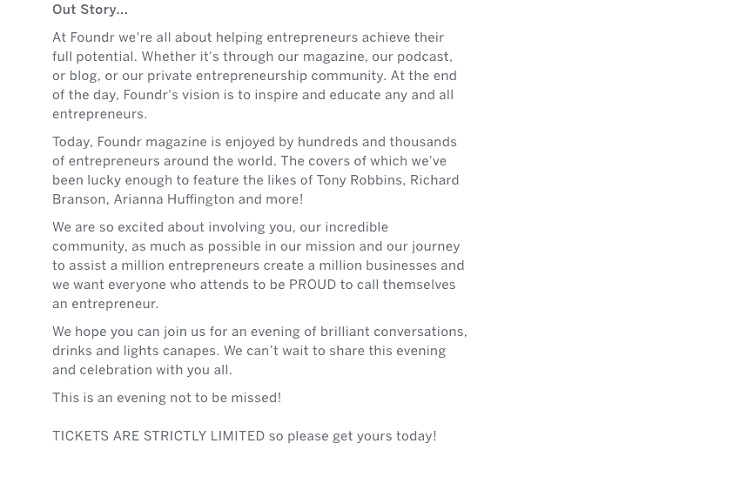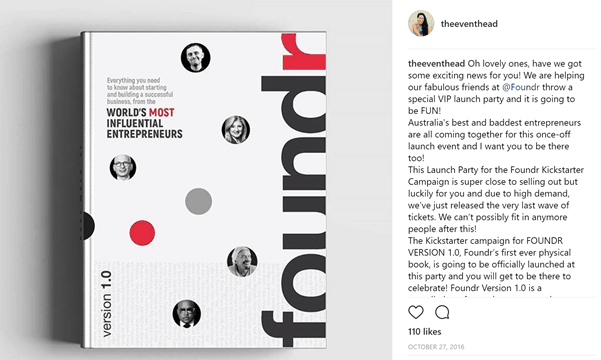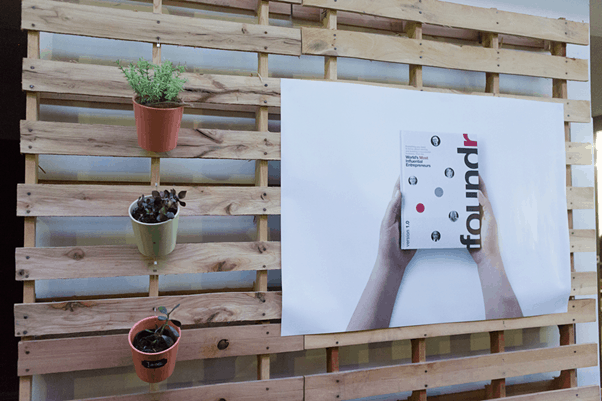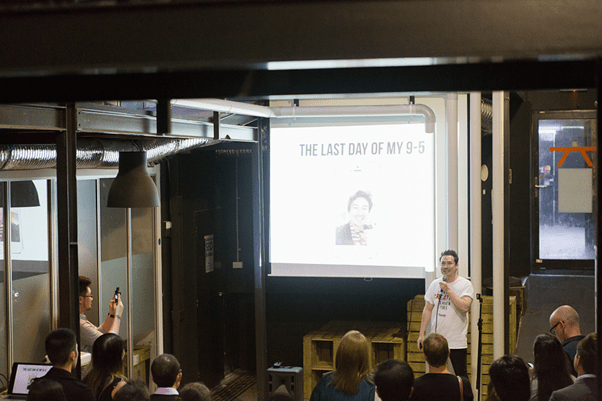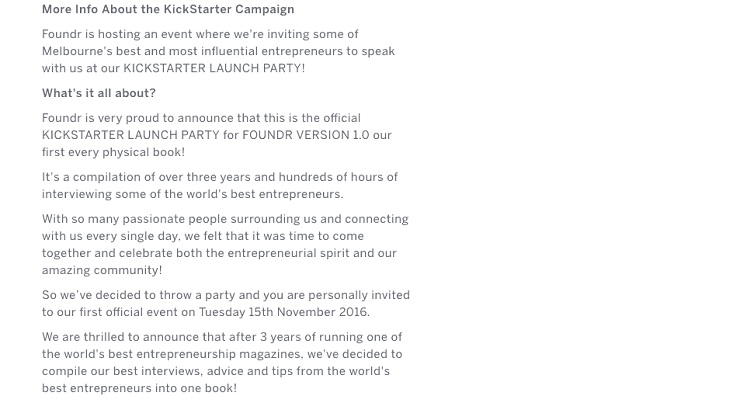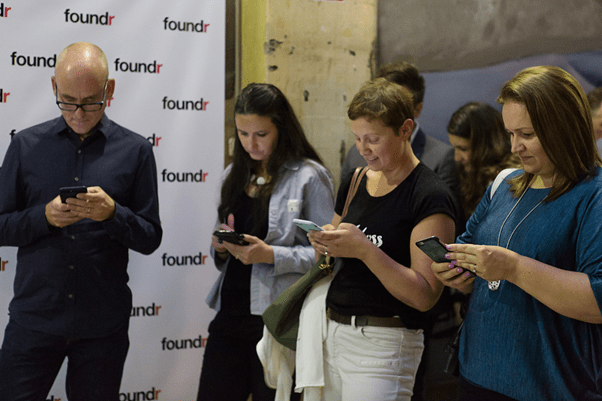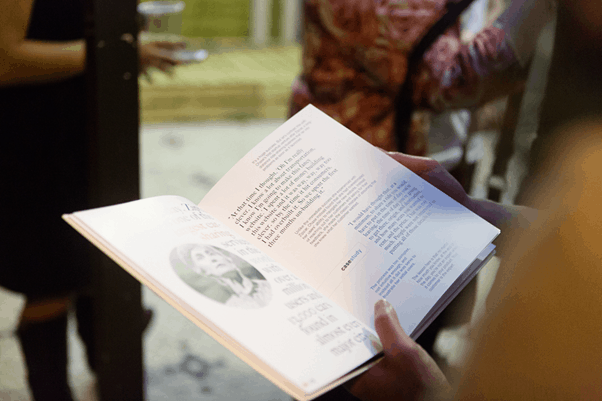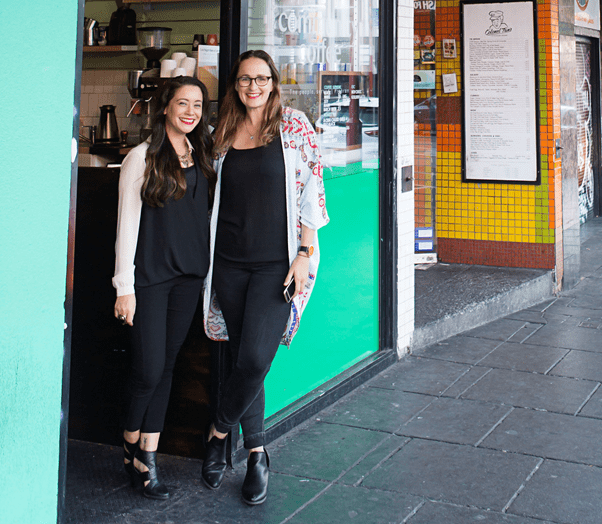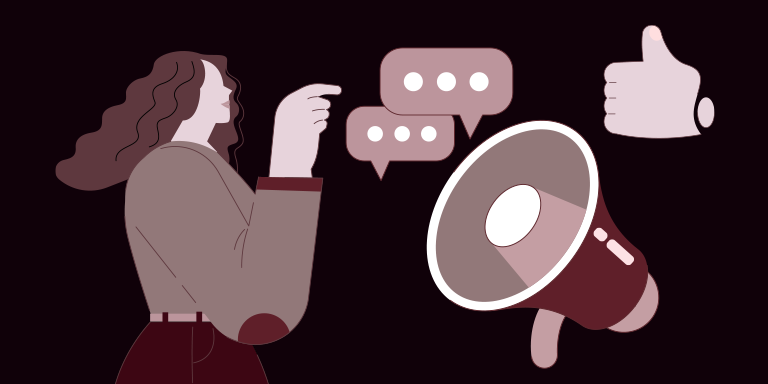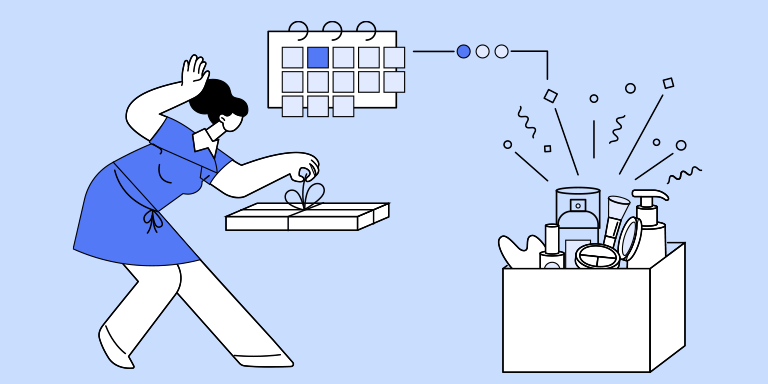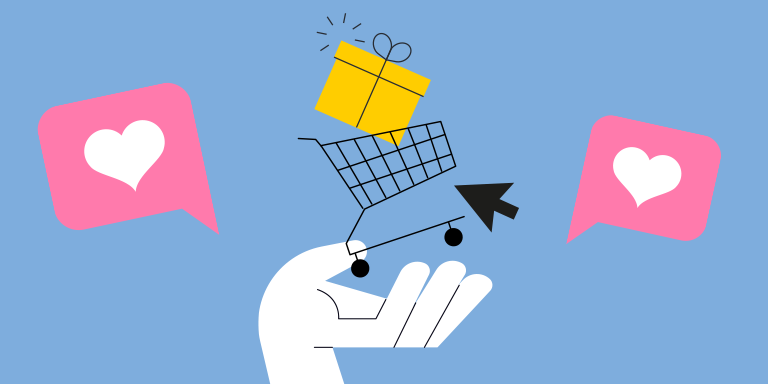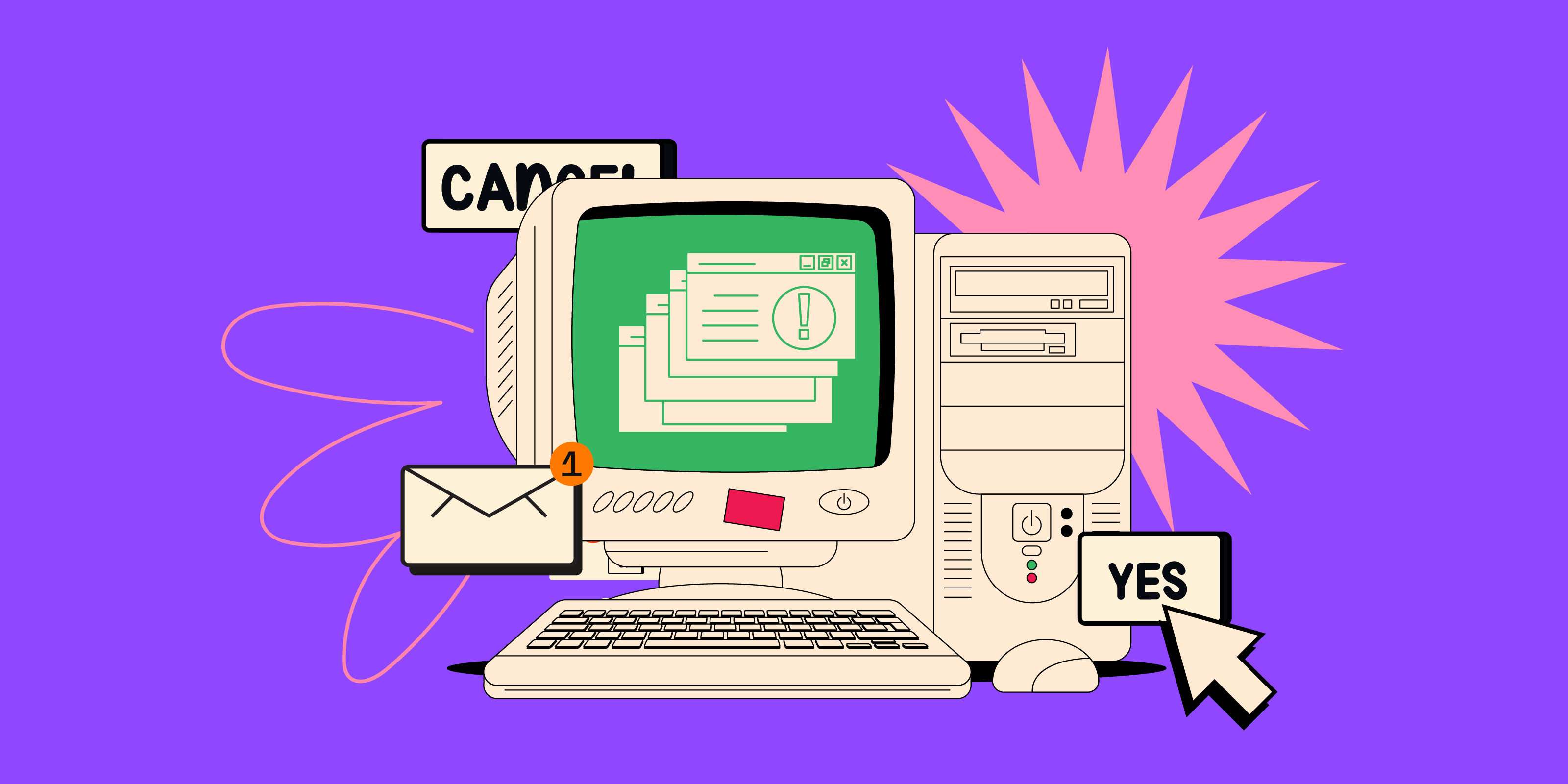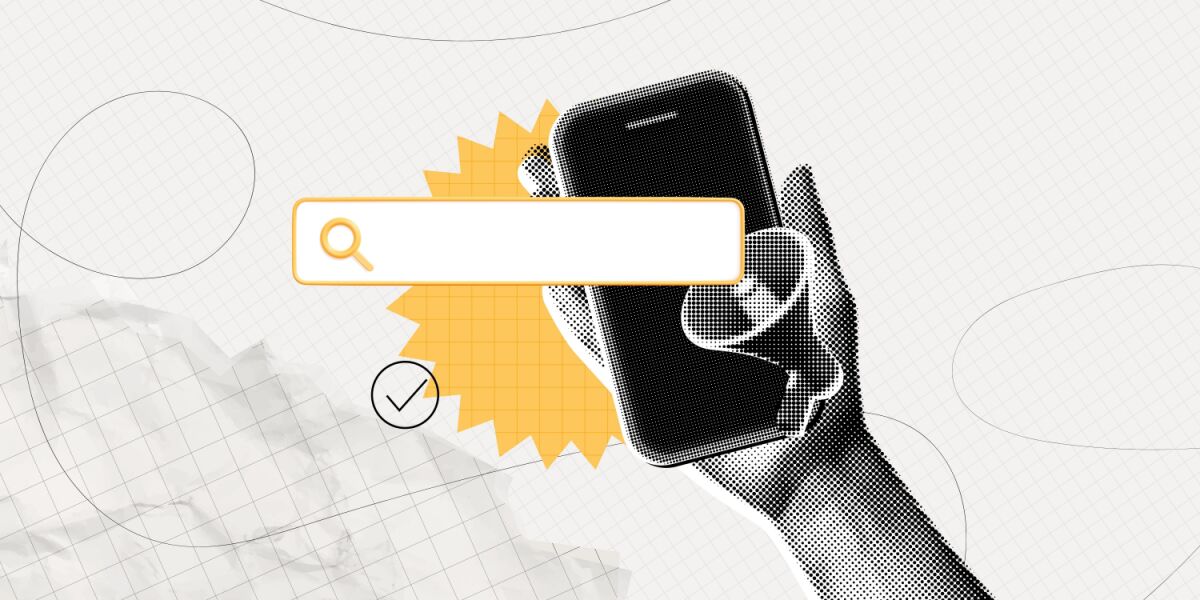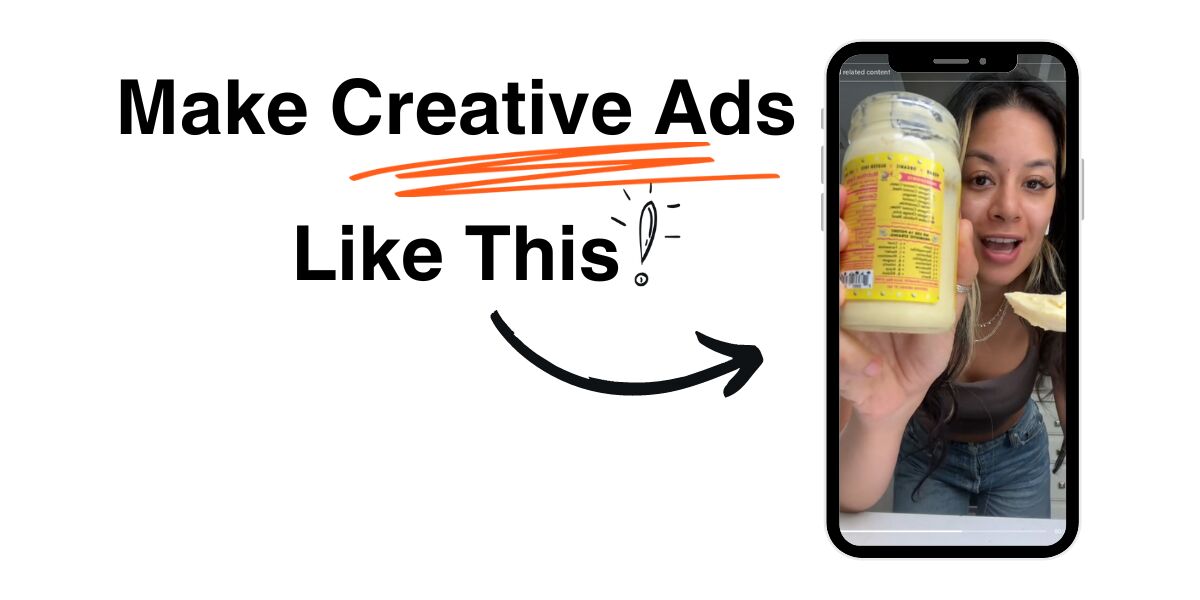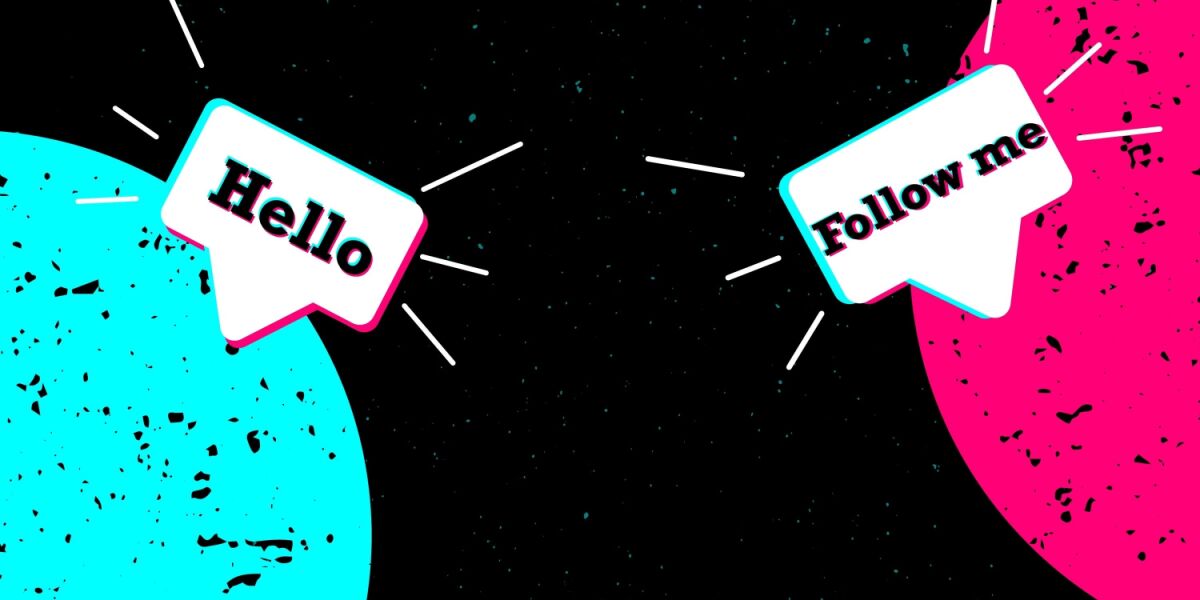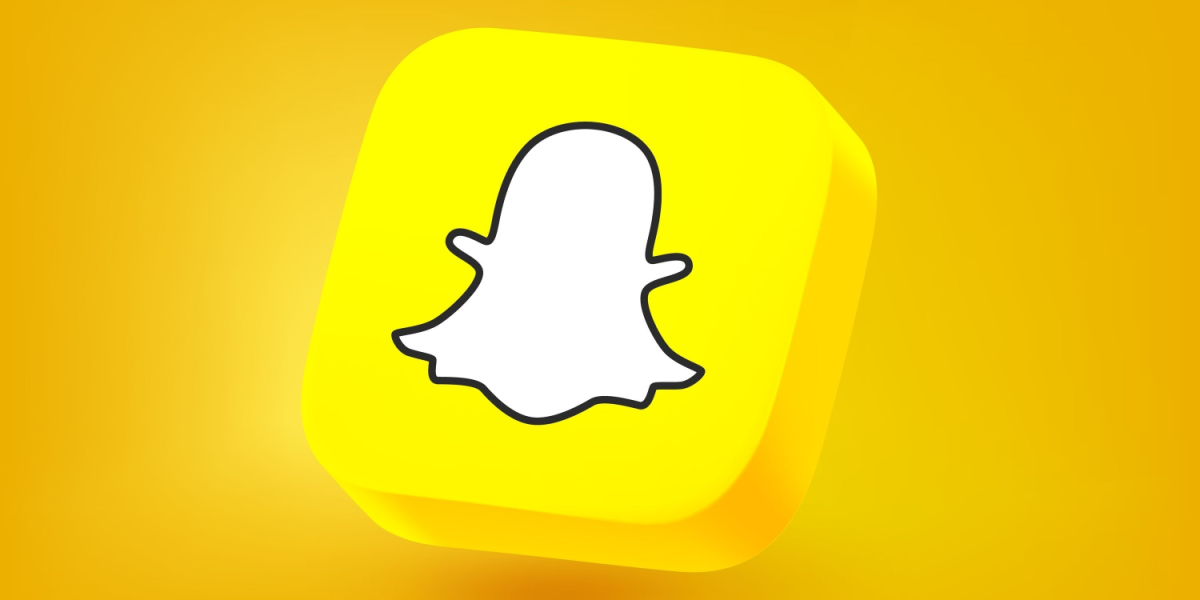We’re living in an age of entrepreneurship in which you could, technically, build a business from scratch and rise to prominence without ever leaving your home.
But you may have noticed that your favorite business gurus, even those who work almost entirely online, hold a ton of in-person events. And for good reason!
I’m a true believer when it comes to holding such events, so much so that I’ve made it my own business. I even had the good fortune of working with Foundr to organize the launch party for its Kickstarter campaign and book release. It turned out to be a hit, but Foundr’s far from alone.
Truly any business can benefit from holding this kind of event. In this article, I’ll explain exactly why in-person events are so great for any online business, and then I’ll show you how you can use the power of events to become the next online success.
If you’re an introvert, like so many of us are, you may be asking, do we really need to venture outside and meet up in person? It’s certainly true that more and more of our learning and interaction is done online. I mean, when are we not connected to those five beautiful little bars? This is a really amazing thing, because it means we can reach out and work with more than just the finite number of people in our local areas. We can help thousands of people all over the world without ever getting on a plane.
Incredible!
With so many courses, mastermind groups, coaching sessions, and virtual learning being done through a screen, I repeatedly hear the question, “Does online business spell the end of in-person events?”
So does it?
Uhhh, hell no!
In fact, the online world makes in-person events even more important and exciting.
That’s because online business gives us unlimited potential to find those who need us and develop a relationship with them, and in turn, in-person events allow us to bring that relationship offline and connect on a truly human level.
I’m a big believer in the idea that you have to do both.
These in-person moments that fortify our online relationships—these are the experiences that can never be replaced.
Think about the last time you went to a live event that left you on a high. Did you see someone you admire get up and speak on stage? Were you in awe of their presence? Did their words wrap themselves around you and speak to something deep inside you? Did you feel a change within you with every a-ha moment? Did you meet up with friends who shared in your excitement afterwards? Did you take pictures for your Facebook and Instagram, grinning from ear to ear? Are you smiling right now thinking about it?
That, my friend, is the power of connection.
And if you want to see a perfect example of the power of in-person events, check out what happens when Gary Vaynerchuk walks into a room…
That’s a guy who rose to fame on YouTube. This kind of in-person response is no accident. He works for it. Look around and note how every successful entrepreneur you admire either includes events on their yearly calendar timed with launches and new offerings, or otherwise graces a stage regularly.
That’s because they know that events:
• Are a surefire way to keep increasing brand awareness
• Are a brilliant way to sell out their latest offerings in a short amount of time
• Help generate social media buzz, free publicity, and insane amounts of word-of-mouth exposure
• Keep them relevant and in the public eye
And we know that events:
• Can create actionable and positive change
• Can lead you to a community of people that make you feel like you’re home
• Can motivate you, inspire you, and MOVE you!
The Business Benefits of In-Person Events
You can experience all of these positive benefits, and catapult your business growth in ways that are concrete and undeniable. Here are six tangible benefits that holding events will have on your brand awareness and business bottom line.
1. Recognition as an expert
When we want to make changes in our lives but don’t know how, having someone stand up and say, “Hey, I can help you,” is just so darn powerful.
By running workshops in your area of expertise and using your knowledge to take people from point A to point B in relation to their problems or goals, you are positioning yourself in the market as an expert.
This is important for business owners because the more you are seen as a specialist in a certain area, the easier it is to attract ideal clients, fill your books with aligned projects and be presented with dream opportunities.
2. More word-of-mouth recommendations
Once people have attended your events and fallen even more in love with you, there will be no stopping them from raving about you in both their social and business circles.
You know that feeling you get when you attended something just SO good and you have to tell everybody about the amazing experience you had?
Well that’s how people are going to feel about you! Trust me, you will be getting emails coming through every week from people saying that they have heard fabulous things about you and they just had to contact you.
3. A wider audience
Even though there are certainly many people who would want to work with you in some way, not everyone is able, ready, or in need of one-on-one services you may offer, such as coaching, consulting, or using one of your products.
By adding events to your list of offerings, you are able to serve people who:
1. Can’t afford to work with you one on one yet
2. Want the information you have in a condensed and immediate manner
3. Need to brush up on skills, but don’t need the one-on-one time
You open yourself up to a whole new audience that may otherwise not have the opportunity to work with you.
4. Group connections
One of the things that I LOVE about events is that they can create incredible connections for everyone in the room that can last a lifetime. I have lost count of all the events I have been to where people are buzzing with excitement, not just from the event’s content, but also all the amazing people they’ve met.
Providing attendees with the opportunity to connect with like-minded people can create an amazing experience that has a hugely positive effect on your brand as a whole.
5. Your brand becomes human
Don’t ever discount this, especially in the online world in which we live. I have attended and managed countless events where the speaker or host is someone with a large online profile and guests leave the day excitedly talking about how they were just so nice, and so easy to talk to, and just so normal.
Think about when you met someone you admired and respected from afar for the very first time. Did you get nervous? Did you think they were incredible for spending time with you, laughing with you, and patiently answering your questions? Did you think it was amazing how they confessed to having the same fears, worries, and challenges as you? Did you love them even more, because on your computer screen they are remarkable, but in real life they just made you feel awesome?
Aim for that and your business will flourish.
6. Additional income streams
So now you have a cracking brand, you’ve gotta make it work for you in all the right ways. That means monetizing that good will. You can maximize your earning potential with new income streams, including alternative ticket packages like VIP upgrades; selling premium offerings like a mastermind session; selling online products through event-only specials, and using your events as bonuses for affiliates.
There are many ways to be smart and strategic about how you use events in your business, and there are no hard and fast rules, so let your creativity run wild!
Learn From the Big Names
There’s no better way to learn than by studying those who are amazing at what they do. Two great examples of entrepreneurs who have used events to spread their messages, gain clients, and sell programs, each in their own unique way, are Jayson Gaignard and Darren Rowse.
In 2012, Gaignard began curating dinners in Toronto with very small, hand-selected groups of entrepreneurs, with a focus on relationship building.
These invitation-only dinners then turned into MastermindTalks, a conference for entrepreneurs that focuses on building wealth, self-improvement, and networking. MastermindTalks speakers have included entrepreneurial heroes like Tim Ferriss and Guy Kawasaki, and Forbes even described Gaignard as one of the top networkers to watch in 2015.
Who knew when he started those small, intimate dinners that he’d eventually be running a conference that brings in more than $200,000, with no sponsors or pitching, just handing out some simple flyers?
Then there’s Darren Rowse, the architect of the annual Problogger event, Australia’s biggest and longest-running blogging conference. Tickets sell out in just hours, giving it the reputation of being the can’t-miss event for training and networking on the blogging community’s calendar.
ProBlogger pulls huge sponsors like Olympus and draws an incredible 650 blogger attendees. International speakers, and a host of local talent deliver a jam-packed agenda full of inspiration, practical training, and networking for those new and old in the world of blogging.
ProBlogger was not always this big, and only started when Rowse put the call out to other bloggers out there, asking if they might like to come together in person at some point.
Imagine if you did the same thing? You just start with one small group of people who all shared the same passion, and then you build it into something that has worldwide recognition, raving fans, and hundreds of thousands in generated income.
Anything is possible.
Next time you run an online offering, I want to challenge you to see how you can incorporate an in-person experience into the mix.
Types of Events
Sounds great, but what are you supposed to do at this fantastic event? You can’t just invite a bunch of industry luminaries together and hope something happens. But don’t worry, if you’re feeling a bit stuck regarding what type of event you should run, you are in good company. Here’s a cheatsheet of events that any business can put on:
Workshops
Workshops are great if you have information to teach in a structured and interactive way over a day or more, and you want people to walk away with something concrete, like an action plan. They lend themselves to pretty much any industry and are a great, low-cost way to position yourself as an expert.
Spoken Word Presentations
These are effective if you are a fountain of knowledge on a particular topic and you just want to talk about it to a captive audience for a couple of hours. Unlike a workshop, there are no worksheets or collaborative exercises. This really is you at the front of the room, addressing your audience for the whole time.
Retreats
Hold a retreat if you want to whisk people away from the daily grind. You’ll usually offer a full itinerary of activities that are both personally and professionally enriching, such as workshop and guest speaker sessions, and even activities like yoga or meditation.
Networking Events & Catch Ups
These events are perfect if you’re a connector in your social and business circles, or someone who wants to position themselves as a go-to resource. They help build trust and allow people to get to know you on a more personal level.
Foundr Melbourne Catch Up Event
These days, you don’t have to get bogged down in the sleazy, old-school type of networking. Networking doesn’t have to be all about making sales and swapping cards. It can just be a cool way to connect with like-minded souls who you find exciting to talk to. Foundr, in particular, is a fan of catch up events, and uses them to connect with its nearby community in Melbourne, but also in the States.
Launch Events
Launches are lots of fun and are great if you have a new business, service, course, or product to show off to a supportive and excited crowd. Launches kickstart interest in your business and help you gain momentum. They allow you to generate attention with multiple opportunities to market and promote.
Launches can take on any form, so get creative, do it with a bang, and enjoy the ride!
Foundr V1.0 Kickstarter Launch
Creating Your Own In-Person Events
Ok, so now you know why events are amazing for you and your business, and you know what kinds of events you can organize. Now let’s look at how you can pull this all together!
Break down your event planning into manageable chunks.
Thinking about all the things that go hand-in-hand with events, there is a real mix of creativity and logistical elements that can be challenging for anyone, especially a first-timer.
Everyone also has different strengths and weaknesses, so some people love the content creation and being there on the day, but dislike the promotion or having to sell tickets. Whereas others love the promotion and marketing, but get hung up on logistical decisions, like timing and location.
Whatever your own tendencies, it’s easy to get overwhelmed when everything is bottled up inside of your head, and there is no clarity around the decision-making process. For that reason, getting everything down on paper is key to reducing stress and knowing where you are at with any task, at any time.
The best way to break down your planning is to separate each core area of work to be done, give each a deadline, and record your decisions and developments as you go along.
One resource I’d encourage you to use is my free 8 Weeks to Event Success Checklist. You can use that as a base, as well as some of the other free resources in my member hub designed to help you get from idea to implementation!
An excerpt from the 8 Weeks to Event Success Checklist
If you are new to events, you’ll especially want to start planning things in small batches across a several weeks in a way that fits in with your routine business activities. The following is a breakdown of the areas of work that will need to be done, including a to-do list for each, which you can use as a guide when you’re getting started.
1. Groundwork and Logistics
This is your when, where, how long, how many people, and your setup and equipment. Anything related to the in-person experience of getting people in that room and running your event as effectively as possible belongs in this category.
Planning List
My perfect event type
My ideal event date and time
My ideal venue
The number of people I want to attend
Equipment that I need
How I will sell my tickets
Foundr VIP Kickstarter Launch Eventbrite invitation
2. Third Parties
This is outside people or entities you need contributions from, including guest speakers, service providers, or product suppliers, including AV, catering, florists, or gifts. Google will be your best friend when it comes to local suppliers. Look for suppliers who are within your vicinity and have positive testimonials on their websites and good reviews on sites such as Yelp.
Planning List
Guest speaker(s)
AV equipment
Caterer
Wait staff
Florist
Photo booth operator
Stylist
Event manager
Attendee gifts
Darren Rowse speaking at the Foundr V1.0 Launch
3. Copy
This is all the content you need for your sales page, ticketing site, social media posts, or promotions. Try and do all of your copy at once in one big document that you can use as a template. It’s better to have one document you can take things from than it is to keep trying to think of new copy every time you have to do something.
Planning List
A short overview of your business or your elevator pitch
An overview of your event
The benefits of attending
Additional speakers:
Who this event is for
Who this event isn’t for
The logistical and pricing details
Testimonials
Any FAQs
Foundr v1.0 book launch party description copy
Foundr v1.0 book launch party description copy
4. Marketing and Promotion
This is a plan of all of your marketing and promotional activities across all platforms. When you have everything mapped out, from how and when it’s going up on your website, when you are going to mention it to your mailing list, and what you are going to say on social media, it ensures you are always moving forward positively and proactively.
Foundr invite to v1.0 book launch party
Planning List
The free ways you would like to promote your event
The paid ways you would like to promote your event (if any)
How you can generate free promotion using traditional and digital media
The influencers you can approach to help promote your event
The platforms you can use to promote including Facebook, Instagram, Snapchat and LinkedIn
My Instagram post on the Foundr v1.0 launch party
5. Attendee Experience
This is where you want to plan out what you want your attendee experience to be like and how you will make it a reality. Everything from the event inclusions, to the décor, to the music, to how you want them to be greeted goes here.
Planning List
Your personal style
Your brand
Your branding colors, shapes, textures, and fonts
Your speaking style
Image from the Foundr v1.0 launch party tying in Foundr branding to the venue
6. Content
This is all of your content for the event, whether it’s keynote presentations, slides, workbooks, worksheets or anything else. Give yourself enough time to prepare this and practice it until it becomes second nature.
Planning List
Record your top key takeaways for the event
Bring the key takeaways to life with relevant information (keep it succinct)
Break down the content into timed sections
Look at what tools you can use to assist in learning, e.g. slides or worksheets
Nathan speaking at the Foundr v1.0 launch party
7. Sales
This is your plan for selling anything on the day of, whether it’s a product or service. Make sure you prepare everything you need to make this happen seamlessly. You may need to write out a pitch and practice it, you may need to prepare a particular flyer or order form, and you may need a way to collect money and provide receipts, so think about the whole sales process and how you will make it flow.
Warming up the attendees of the Kickstarter launch party on what to expect on the ticketing sales page
Planning List
Your pitch
Your slides if doing a presentation, including visuals or video
Your product display
Your sales process
Your fulfilment process
Attendees at the Foundr V1.0 Launch going to the Kickstarter link on their mobiles during the presentation
8. Physical Items
And finally, organize all the physical items that you need to bring with you, how you will transport them, if you can deliver them beforehand, how you will set them up, who gets what, who gives them out and what happens to any leftovers. It’s worth preparing all of these at least a couple of days in advance so you don’t leave anything at home when you are dashing madly out the door.
Planning List
The full list of items you need at your event
What you personally will you bring
What suppliers will deliver
Who will set up which items
Where each item needs to go
An attendee at the launch party going through a prototype of the Foundr V1.0 book
What You Might Overlook
And finally, let’s look at the little things that are often overlooked the first time around, but are a must for a well-organized and seamless event.
Time
Give yourself at least eight weeks for a small event to promote it and to ensure you reach as many people as possible. Allow them time to make the purchase, organize their work or personal schedules and most importantly, give yourself enough time to plan an event that you are proud of and excited to attend.
Visualization
Sit down and give yourself the time and space to visualize how you want the event to play out from start to finish. How you want people to enter the space, how you want them to be greeted, how you want the room to be set up, whether there’s music playing, how you want to present, how interactive you want to be, and what you want attendees to do when the presentations are over.
The more you can visualize naturally, the more you will find decisions can be made quickly and easily throughout the planning process.
There is no cookie cutter solution for a successful event. Successful events come in all shapes and sizes, so it’s important you do them in a way that feels great for you and your guests. Your visualization will help make it feel even more real and achievable for you.
Run Sheet
Even if your event is super basic, a run sheet is a must. A run sheet is basically a timetable that shows what is going to happen at your event, when it will occur and who is taking care of that particular task.
If something happens, you want to be able to have someone pick it up and help run things in the background for you or know where you are supposed to be at to get everyone out on time. It helps you stay on time, keeps things orderly, and allows a stressful experience.
Help
Don’t do this on your own. Promise me! You need someone there to support you and greet guests, direct people to the bathroom, help with the catering, take photos, answer queries, help pack up while you say goodbye to guests, and even help you get things to your car afterwards.
Debrief, Right After
While everything is fresh, review everything!
Look at the numbers, write down the things that worked really well, and what you would do differently next time. Name the suppliers you loved and even write down things like the questions attendees asked you during your presentation, or where they received the most value. They are all clues to help you when creating your next event.
Jade and Kate of Event Head at the Foundr V1.0 Kickstart Launch
After running events for more than a decade, attending thousands of others, working with experienced speakers, newbies, spiritual gurus, corporate mavens, entrepreneurial heros, and more, I know for sure that events are an incredible way to make your business go boom.
And now you have a head start on creating your own! So please tell me, if you could put on any event for your business, what would it be?

